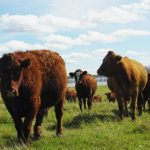Monsanto is taking all the necessary precautions to ensure that Roundup Ready alfalfa doesn’t wind up on Canadian fields, says a seed dealer in Montana.
Dale Strouf, operations manager at Heartland Seed in Moccasin, Mont., said there are plans to monitor farmers who buy the genetically modified forage seed.
“Once a producer has purchased a seed and planted it, we will be staying in touch with that producer. We will be taking GPS co-ordinates of the fields he planted. This will help account for how many pounds of seed did he buy and how many acres were planted,” Strouf said.
“Say somebody bought a 1,000 lb. of seed but only put it on five acres. That’s a big red flag.”
The U.S. Department of Agriculture deregulated GM alfalfa Jan. 27, which allows American farmers to buy Roundup Ready alfalfa and plant it this year.
Canadian forage seed producers, including Paul Gregory of Fisher Branch, Man., have said technology would jeopardize Canadian exports of forage seed if it seeped across the border.
Strouf said cattle producers near Moccasin are showing interest in GM alfalfa seed, even though it costs $7 per lb., compared to $4 per lb. for conventional alfalfa.
“There’s a little bit of concern (regarding price),” Strouf admitted.
American producers who buy the GM seed must sign a Monsanto technology stewardship agreement, which states the seed is restricted to use in the U.S. and is only for producing hay.
In addition, the tracking of the technology after purchase isn’t random. Strouf said Monsanto and seed dealers will monitor all producers who buy GM alfalfa.
“Every purchaser. Every field.”










